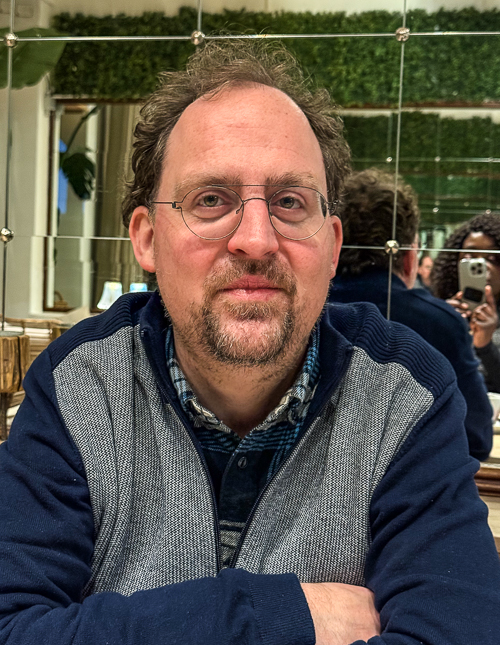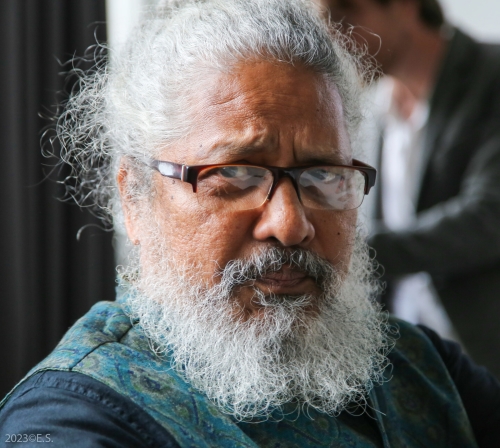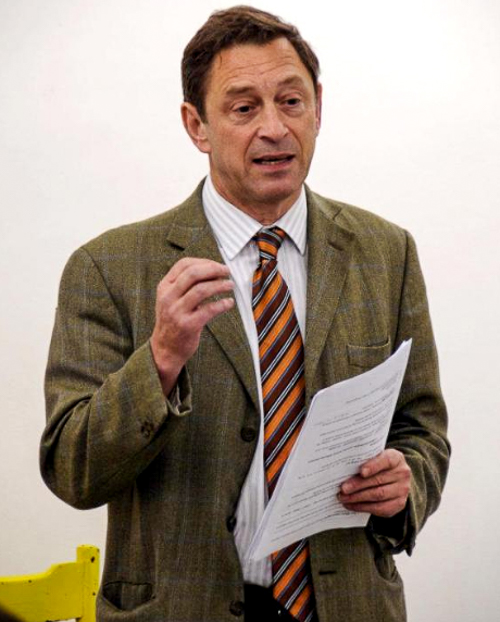
by Scott Jacobsen | Jan 22, 2025 | News
Steven Janssens is a Belgian filmmaker and engineer known for his diverse career as a director, editor, and trainer. He gained recognition for documenting Crazy Money (2020), a film capturing the Eight project in Busibi, Uganda, where residents receive unconditional basic income. His extensive filmography includes the documentary Wardje (2004), Point Off U (2007), and contributions to Kongo (2010). Steven has worked on award-winning projects like Atoma by Brepols (2012) and web documentaries like Het Antwerpgevoel (2010), and most recent film Blind Spots (instagram: @blindspotsthefilm). Combining technical expertise and creative vision, Steven continues to explore impactful storytelling through innovative and socially conscious filmmaking. Janssens talks about collaborating with sociologist Maarten Goethals to provide unconditional cash transfers in impoverished African communities, including Uganda and the Democratic Republic of the Congo. Inspired by the transformative potential of basic income, Janssens produced Crazy Money, documenting their pilot project in Busibi, Uganda. By partnering with the University of Antwerp, Eight measured the program’s impact on education, healthcare, and entrepreneurship. Janssens emphasizes trust and autonomy, noting significant improvements in life satisfaction and community development. Eight’s efforts now expand to Côte d’Ivoire, addressing poverty, climate resilience, and gender equality through evidence-based, scalable interventions.
Scott Douglas Jacobsen: Today, we’re here with Steven Janssens, a Belgian documentary filmmaker who co-founded the nonprofit Eight, established in 2015. You founded this organization with sociologist Maarten Goethals. What was the original inspiration behind Eight, and why did you focus specifically on underserved communities in Uganda and the Democratic Republic of the Congo?
To read the full interview, click here.

by Scott Jacobsen | Jan 21, 2025 | News
Today, we are here with Sarath Davala. He is an international intellectual, an Indian sociologist, and the Chair the of Basic Income Earth Network (BIEN), a global organization fostering dialogue on universal basic income. Of the organizations I write for and collaborate with, this is genuinely international regarding its members’ personalities, cultural backgrounds, and intellectual contributions. Sarath is one of those prominent figures.
He is the co-author of Basic Income: A Transformative Policy for India. He served as the research director for the Madhya Pradesh Basic Income Pilot from 2010 to 2014. He was an associate professor at the Indian Institute of Management Bangalore from 1993 to 2000. Based in Hyderabad, India, he co-founded the India Network for Basic Income and Mission Possible 2030, both dedicated to advancing informed discussions about basic income.
First, what inspired your sociological perspective and promotion of universal basic income as a transformative policy proposal?
To read the full interview, click here.

by Scott Jacobsen | Jan 10, 2025 | News
Dr. Guy Standing is a Professorial Research Associate at SOAS University of London and a founding member and honorary co-president of the Basic Income Earth Network (BIEN). This non-governmental organization promotes a basic income for all. Standing discusses the concept of emergency-based basic income (EBI) as a tool for recovery in crises like natural disasters, wars, or economic collapses. Standing highlights its effectiveness in creating economic stability, reducing corruption, and fostering social solidarity. Using examples from Sri Lanka, Ukraine, and India, he explains how EBI directly empowers individuals and communities while stimulating local economies. They also explore issues like equitable distribution, the treatment of migrants, and potential corruption, emphasizing transparency and universal access. Standing notes growing global interest, including support from the Vatican, and underscores EBI’s role in promoting justice and hope.
To read the interview, click here.




